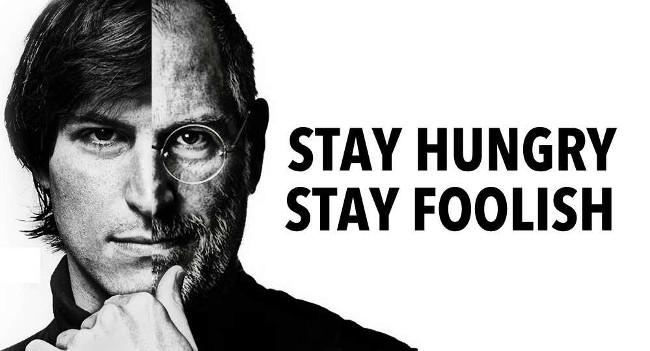The way that Steve Jobs created 'unlimited warriors' who do bosses must know
He knew that low goal means to accept mediocre results. But targeting high, if everything goes smoothly, it will create something extraordinary.
Low goals mean accepting mediocre results
Steve Jobs is famous in the field of " distorting reality ", as people often call it. Partly an encouraging strategy, partly derived from his ambition and determination, this area made him famous as someone who always denies phrases like " This can't be done " or "We need more time."

From a young age, he learned that reality is distorted by the rules and compromises that people are taught as children, he has a strong idea of what is possible or impossible. He said that once the vision and professional ethics were considered, most of life could change according to its own will.
For example, during the mouse design phase for a new Apple product, Jobs made a very high demand. He wanted it to be able to move flexibly to any direction - a new development of the computer mouse at the time. But a member of the design team told the chief engineer that the idea was impossible. What Jobs wants is impractical and will never succeed.
The next day, the chief engineer came to work and learned that the person who said the sentence was fired. When the engineer replaced him to work, the first sentence he said was " I can create that mouse ." That is Jobs's point of fact in work: adaptive, tough, confident. Not an illusion, but to achieve something.
He knew that low goal means to accept mediocre results. But targeting high, if everything goes smoothly, it will create something extraordinary. Like when Napoleon shouted at the soldiers: " There is no Alps here !".
Pass the limit
For most of us, that confidence doesn't come easy. That can be understood. Too many people have been explained about the need to "be realistic", " tame " or worse than " don't stir things up ". It is a great disadvantage to have the opportunity to try great things. Because although suspicion (and self-doubt) seems to be true, they have no effect on what can or cannot.
To a surprisingly large extent, our views determine what we can or cannot do. They decide the reality in many different ways. When we believe in obstacles rather than goals, what of course will win?
Be open and ask questions. Although we have no control over reality, our perception affects it . A week before the delivery of the first Macintosh computer, engineers told Jobs that they could not make it in time, two weeks before it was finished. Jobs answered calmly, explaining to the engineers that if they could finish in two weeks, they could do it in a week, there was no difference in such a short time.
And more importantly, because they have reached this step and have done many things, they cannot afford not to deliver on January 16 as intended. The engineers protested and reset the deadline. Jobs's insistence once again pushed them beyond their limits.
How often do we respond to unattainable deadlines assigned by our superiors? We complain. We are angry. We question. " How can they? What does that mean? Who do they think I am? " We try to find a way out and feel sorry for ourselves.
For Jobs no action above affects the objective reality of that time limit. Unlike the way " go ahead is possible ". Jobs refused to tolerate those who did not believe in his ability to succeed. Even if his requirements are unfair, harsh or too ambitious. His products are wonderful and miraculous. He overcame what others thought was beyond the limit, from which to create something completely new.
Nobody believes Apple will make products like today. The fact that Jobs was removed from the company in 1985 because the board member at the time thought that Apple's entry into the home appliance industry was a crazy plan. Of course they were wrong. Jobs had learned to dismiss all judgments and objections - which stemmed from fear.
When he asked for a special type of glass for the first iPhone in a time beyond its capacity, he frightened the manufacturers. " We can't do it, " they said. " Don't be afraid ," Jobs replied, " you can do it. Put your mind into it, you'll do it ." Just overnight, manufacturers turned the factory into a giant glass factory and in six months they made enough glass for the entire first batch of phones.
A trader is someone who has confidence in his ability to create things when he has nothing before. For them, never having done this is a good thing. When given an unfair task, they look at it as an opportunity to try to see what they have, to devote everything they have, while knowing very well that it will be difficult to win.
They see them as an opportunity, because in a situation where there is nothing left to lose, we become the most creative. Our best idea comes from there, when obstacles illuminate new options.
You should read it
- ★ Steve Jobs and eight words of 'thunder' have come true in the technology world
- ★ 3 stories in Steve Jobs' 'classic' speech at Stanford University
- ★ The memorable product presentation presentations by Steve Jobs
- ★ The unprecedented sayings of Steve Jobs
- ★ 9 tips for good presentations like Steve Jobs
